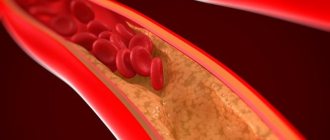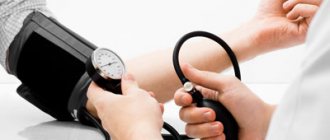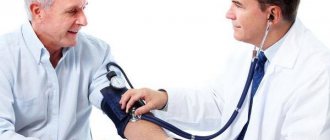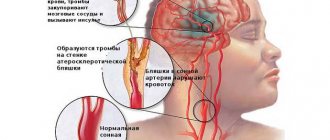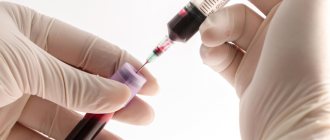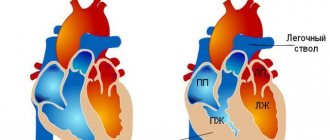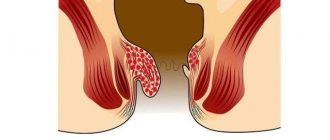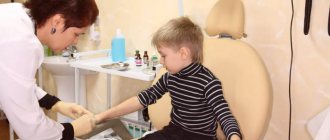We will consider in detail the symptoms and treatment of stage 3 hypertension, its causes, risk factors, and prognosis.
Hypertension increases blood pressure. This is manifested by the following symptoms:
- noise in ears;
- headache, especially in the temple area;
- sometimes red dots appear before your eyes;
- less often – nosebleeds.
Classification of hypertension
Hypertension is a disease in which the upper limit of blood pressure fluctuates at more than 140 millimeters of mercury. Modern doctors classify hypertension depending on its stages. This method of classification was first proposed by the Soviet cardiologist A.L. Myasnikov.
There is arterial hypertension of 1, 2 and 3 degrees. These stages are characterized by the severity of symptoms, as well as the involvement of internal organs in the pathological process.
So, in more detail:
- The first degree is the easiest. It is characterized by periodic surges in blood pressure.
- Arterial hypertension of 2 degrees (risk 3 will be discussed later) is moderate. High blood pressure can be controlled with the help of special medications, but the vessels located in the heart and fundus of the eye are already subject to negative changes.
- Arterial hypertension of the 3rd degree is the most severe and is characterized by the development of concomitant diseases. Vessels located in the brain and heart, as well as large arteries, are seriously damaged.
If the patient's blood pressure is above 180/110 millimeters of mercury, then we can talk about the presence of third-degree hypertension. In this case, the target organs are significantly susceptible to pathology. For example, the lumen of blood vessels narrows greatly, and plaques form on the inner walls of blood vessels.
Arterial hypertension of 2 and 3 degrees is accompanied by an enlargement of the left ventricle and the first symptoms of heart failure. Kidney tissue is subject to progressive degenerative changes, resulting in the development of chronic renal failure. Sclerosis of the blood vessels that supply the brain develops. As a result, memory and intelligence decrease.
Treatment of late stage hypertension
Therapy for this degree of disease requires the correct choice of medications. In addition to medications, the doctor may prescribe procedures and diet. Stage 3 hypertension requires giving up bad habits and changing your lifestyle. Therapists also insist on the correct work and rest schedule, as well as preventive procedures.
A disease such as stage 3 arterial hypertension requires complex treatment. From the point of view of conservative medicine, a whole treatment regimen has been developed that requires the following measures:
- Healthy lifestyle. Together with the doctor, the patient develops an individual daily regimen and selects a set of exercises. It is also important to give up bad habits, since alcohol consumption and smoking increase blood pressure.
- Normal rest. The patient can go to work, but a prerequisite for good health is 8 hours of sleep per day. If possible, it is better to sleep 6-7 hours at night and set aside time for daytime rest for 1-2 hours.
- Changing your diet. It is difficult to completely give up unhealthy foods, but it is necessary to minimize those foods that increase blood pressure. The speed of his recovery depends on how strictly the patient follows the diet rules.
- Drug therapy. In matters of treatment of stage 3 hypertension, the help of traditional healers, healers, etc. should not be allowed. Only the attending physician can select pills and prescribe a course of drugs. Self-medication can lead to deterioration of health.
Drug treatment
To treat hypertension, the doctor prescribes medications that are most suitable for the patient. In this case, the specialist takes into account the patient’s age, characteristics of the course of the disease, intolerance to certain drugs, etc. To treat grade 3 hypertension, the following set of medications is prescribed:
- beta blockers;
- calcium blockers;
- vasodilators;
- antidepressants;
- diuretics;
- sedative.
Beta blockers can quickly reduce blood pressure and normalize the heartbeat. These medications are not addictive, but they are contraindicated for people with asthma and diabetes. This medicine can cause bronchospasm, so its use requires supervision by a specialist. The most common drugs in this group are: anaprilin, concor and nebilet.
Diuretics - diuretics - ensure the removal of sodium and excess fluid from the body, which normalizes blood pressure. Today the following drugs are known: euphyllin, canephron, phytolysin.
Substances that block calcium ions reduce the frequency of contractions of the heart muscle, thereby normalizing the speed of blood flow and pressure in the vessels. Doctors prescribe the following calcium blockers: amlodipine, Lasix.
Medicines that dilate blood vessels relax their walls, which also helps normalize blood pressure. For these purposes, the therapist may prescribe minoxidil or hydralysine.
For grade 3 hypertension, the attending physician prescribes additional treatment in the form of sedatives. Reducing irritability and preventing the development of depression is an important stage of treatment. With stage 3 hypertension there is a high risk of disability, so it is better to prevent panic attacks, anxiety, and attacks of irritability in a timely manner. To do this, a specialist may prescribe a remedy such as phytoset or novo-passit.
Gymnastics
Today, many methods have been developed for treating hypertension through properly selected exercises. The most popular remedy is Shishonin’s gymnastics, which consists of a set of physical exercises:
- "Metronome". It is necessary to tilt your head to the right and left 15 times. In this case, you should perform it slowly, fixing the position of your head for several seconds.
- "Spring." Tilt your head down to touch your chin to your neck, and then forward. Repeat each movement 10 times, fixing your head at each point for several seconds.
- "Looking Up" It is necessary to turn your head alternately to the left and right sides, fixing it in each position for 15-20 seconds.
- "Frame". The exercise is similar to the previous one, only with the connection of the upper limb belt. Turning the head should be performed simultaneously with placing the hands on the shoulders.
- "Crane". You should place your palms on your knees, and stretch your chin and head forward and up. At the same time, you need to move your shoulders back.
- “Fakir” is done in the same way as “look up”, but the hands should be placed above the head, palms clasped.
- "Goose". This technique requires pulling your neck forward while keeping your chin straight. Next, the head is turned to the sides, fixing each movement for 15-20 seconds. The neck muscles should be tense.
A set of exercises should be performed daily a couple of times a day. In the first days, it is better to do each technique 5-10 times, after which you can increase the load.
Also, this exercise allows you to remove drowsiness, relieve fatigue, and increase stress resistance. Shishonin’s gymnastics are indicated for people with memory loss, blurred vision, headaches and osteochondrosis.
Right way of life
Many patients with stage 3 hypertension are wondering what to do next. Of course, it’s quite difficult to immediately change your daily routine, get rid of bad habits, or go on a diet, but gradually you’ll have to get used to it. Maintaining a sleep schedule and proper rest is the first step to recovery. The doctor will also recommend avoiding nervous shocks and learning to control your reaction in stressful situations. The second step is a positive attitude and lack of stress, and the third is a healthy lifestyle and proper nutrition.
Experts have identified several basic rules for people with high blood pressure:
- daily walks in the fresh air;
- reducing the number of stressful situations and experiences;
- measured rest;
- regular visits to a therapist;
- eliminating bad habits;
- following doctor's orders;
- no self-medication or taking unknown drugs.
Causes of the disease
If the patient’s hypertension is in the third stage, we can talk about its neglect. It develops as a result of the lack of adequate therapy in the first two stages of the disease.
A large number of patients try to ignore the initial symptoms of the disease and deliberately avoid visiting a doctor. It is for this reason that doctors are faced with advanced stage 3 arterial hypertension.
If a patient ignores the doctor’s recommendations, does not take prescribed medications in a timely manner in the first two stages of the disease, or self-medicates, this is very dangerous. This will inevitably lead to the development of the third stage of hypertension.
Factors influencing the development of the disease include:
- Having excess weight.
- Bad heredity.
- Old age of the patient.
- Passive lifestyle.
- Having bad habits.
Quite often, hypertension occurs due to constant overexertion and systematic stressful situations. How is arterial hypertension of the 2nd degree with the 3rd risk characterized, we will consider below.
Risk factors for hypertension
Risk factors provoke the onset of the disease, aggravate its course and depress the prognosis. These include:
- age;
- nicotine intoxication;
- cholesterolemia;
- family inheritance;
- other: obesity, hypokinesia, diabetes mellitus, belonging to high-risk socio-economic and ethnic groups.
Many of the factors can be influenced, reducing or completely eliminating their influence on the formation of hypertension risk levels.
Symptoms of the disease
Arterial hypertension of the third degree is characterized by the following specific symptoms:
- Weakness appears.
- Pulsating pain occurs, which is periodic and localized in the occipital region.
- “Floaters” appear before your eyes.
- Memory deteriorates.
- The pain is localized in the area of the heart.
- There is drowsiness.
- Limbs swell.
- Chills occur, and at the same time sweating is activated.
- The skin of the face turns red.
- Regular dizziness is possible.
- Decreased sensitivity in fingers and toes.
Quite often attacks appear in the form of hypertensive crises, which are particularly severe. During an attack, the patient feels a significant headache, pain in the heart area, and may lose consciousness.
What does arterial hypertension of degree 2 with risk of 4 mean? More on this later.
Clinical picture of the disease
Hypertension of the 3rd degree has more pronounced symptoms than, for example, hypertension of the 1st and 2nd degrees. A patient suffering from the third stage of hypertension complains of feeling unwell:
- Frequent, dull headaches that appear especially often in the morning. Mainly observed in the temporal, parietal, and occipital parts of the head. The eyeballs and bridge of the nose hurt. Periodically, the pain may intensify and be accompanied by nausea and vomiting.
- The patient often feels dizzy and has “flying spots” due to poor blood circulation in the brain.
- Due to sclerosis of the brain vessels, a person complains of tinnitus.
- There are signs of angina pectoris. The patient complains of shortness of breath and a constant feeling of fear.
- Focal manifestations of ischemic processes in the brain center are observed, fingers and toes go numb. A person is haunted by the feeling of goosebumps and weakness crawling over him.
- As a result of cerebral ischemia, memory deteriorates and intelligence suffers.
- Retinal vasospasm causes irreversible changes in cells, and vision deteriorates significantly.
According to statistics, hypertension is the most common disease of the cardiovascular system. Up to 30% of the world's adult population suffers from this disease. Among older people, the numbers increase to 65%. Hypertension can have the most unexpected and unpleasant consequences. It is important to notice any changes in the body, diagnose the disease in time, and begin treatment.
See also Symptoms and treatment of renovascular hypertension
Risks of the disease
At the moment, doctors identify four levels of risk. The degree of risk refers to the likelihood of developing complications in the heart.
The first risk group is characterized by the likelihood of target organ damage in approximately fifteen percent of patients. In the second risk group, this figure increases to twenty percent. Everything is getting more serious. Arterial hypertension of 2 degrees with risk 4 is extremely rare. However, it happens.
The third and fourth degrees of risk are typical for hypertension of only the third stage. That's not all. The third risk group is characterized by the threshold for the likelihood of developing heart and vascular diseases. More than twenty percent. The fourth group is characterized by the highest level of risk. In this case, the probability of complications is more than thirty percent.
Arterial hypertension of the 3rd degree of the fourth risk can lead to the development of myocardial infarction or stroke. If adequate therapy is not available, the disease poses a significant threat to the life and health of the patient.
Risk levels - what are they?
The predicted possibility of complications from the cardiovascular organs occurring over the next 10 years is called the degree of risk. Risk analysis is carried out by assessing the combined interaction of many significant indicators. In the formation of the pathological cycle, the importance of the patient’s gender and age is taken into account, the presence of burdened heredity, depressing lifestyle features, as well as the severity of concomitant pathology and target organ dysfunction are taken into account. The predicted possibility of developing complications reaches:
- at risk 1 – 15%;
- risk 2 – 20%;
- risk 3 – 30%;
- risk 4 exceeds 30%.
Obviously, grade III hypertension, in which dysfunction of the cardiovascular system and target organs is already present initially, is associated with risk 3 and risk 4.
Effective treatments
A patient with the third stage of hypertension should strictly follow the recommendations of doctors. And follow the drug treatment regimen. As a rule, the treatment of this disease lies in the competence of several specialists of a narrow profile, namely a neurologist, cardiologist, ophthalmologist and therapist.
Patients need:
- Follow the prescribed diet.
- Eliminate bad habits as much as possible.
- Reduce the amount of salt and water consumed.
- Add gentle physical activity into your life, the intensity of which can be increased over time.
But this is not the only treatment for stage 3 arterial hypertension. It is also necessary to regularly take medications that normalize blood pressure. As a rule, at the third stage of hypertension, the doctor recommends taking medications that have a prolonged effect. They must be taken once a day.
In order to lower blood pressure, the doctor may prescribe drugs included in the following groups:
- Beta blockers.
- Vasodilators.
- ACE inhibitors.
- Diuretics.
If the disease is accompanied by some other concomitant ailments, it is necessary to take medications that will be aimed at treating them. For example, heart failure requires taking nitro drugs, and poor circulation in the brain requires vascular drugs, vitamins and pills that will enhance brain activity. Arterial hypertension of the 3rd degree with the 3rd risk requires the selection of the necessary medications that will bring the most positive effect.
Diagnostics
Stage 3 hypertension can be detected using special equipment and tests. Objective signs include the following indicators:
- Blood test results reveal elevated cholesterol levels. When kidney damage occurs, creatine and urea levels increase
- Reddish tint of the arteries of the fundus. The ophthalmologist will see not only the narrowed arteries, but also the shade. This symptom expresses the possibility of hemorrhage in the retina.
- Ultrasound of the heart reveals signs of heart failure and enlarged heart chambers.
- When examined by a therapist, expansion of the boundaries of the heart and extraneous noise will be revealed.
- At an appointment with a neurologist, decreased sensitivity of the limbs and impaired coordination will be detected.
- The ECG results will reveal signs of heart reboot and heart rhythm disturbances.
Prevention, disease prevention
Timely treatment of hypertension in the first two stages will be the best way to prevent the development of the third stage. Patients also need:
- Do not avoid rational physical activity.
- Maintain a normal sleep schedule.
- Try to eliminate stressful situations from your life and be less nervous.
- Monitor your own body weight and try to eat right.
- Get rid of the habit of going to bed late. It should be remembered that insufficient sleep can provoke a hypertensive crisis.
- Take active rest if your professional activity requires little mobility.
- Rest every evening if your professional activity requires constant standing.
- Eliminate bad habits such as smoking and drinking alcohol as much as possible. Nicotine and ethanol significantly constrict blood vessels.
- Regularly consult with your doctor and undergo the necessary examinations.
If a specialist can promptly identify a worsening condition in early stages of hypertension, this will allow him to prescribe effective treatment. It can slow down the progression of the disease to a severe form.
Patients who suffer from stage 3 hypertension, risk degree 3, should minimize the consumption of foods such as salt and spices, strong tea and coffee. You should include fruits and nuts, dairy products, vegetables and legumes in your diet.
In this case, you need to drink no more than one and a half liters of liquid per day. You need to eat in small portions, but often, about five times a day. Eating food later than three hours before going to bed is not recommended. Preference should be given to bread made from rye flour.
If hypertension is accompanied by gastrointestinal or kidney diseases, then you should consult a specialist about nutrition. This is due to the impossibility of consuming certain foods for such diseases.
It is definitely worth remembering that arterial hypertension of degree 3 with a risk of 4 is a very serious disease. However, if you follow the recommendations of your doctor, adhere to the drug therapy regimen, and pay attention to your diet, then it is quite possible to maintain activity and a normal, fulfilling life.
Causes
The main reason is hypertension. It can be a symptom or an independent disease. Most often, hypertension is the result of damage to internal organs (kidneys, vessels of the endocrine system).
According to conservative estimates, up to 40% of the entire world population suffers from hypertension. The risk of encountering this disease increases as the body ages. The risk of developing cardiovascular diseases also increases.
Most often, arterial hypertension is the result of hypertension. This is essential (primary) hypertension.
The task of doctors is to identify the true cause and prescribe treatment to eliminate it. With proper therapy, positive dynamics occur quite quickly.
Only in 5-10% of all cases is it possible to establish the mechanism of development of hypertension. This is symptomatic hypertension. It is classified as reversible. The main thing is to find and eliminate the cause.
The main mechanisms for the development of hypertension:
- Neurogenic. It appears in obese patients, with heart failure, and in the early stages of diabetes. This activates the sympathetic nervous system.
- Vascular. Associated with dysfunction of the inner layer of blood vessels, deposits on their walls, blood clots, and decreased tone. The walls of blood vessels thicken over time, and their lumen narrows.
- Renal. The kidneys excrete sodium. This is how they regulate blood pressure. If kidney function is impaired, salts are excreted much more slowly. The volume of blood plasma increases, which leads to an increase in blood pressure. This factor is often associated with genetic predisposition.
- Hormone. Hormones (aldosterone) are involved in the regulation of blood pressure. They are produced by the kidneys and adrenal glands.
Approximate diet for stage 3 hypertension
Patients who suffer from this disease should remember important things. The key to good health and effective therapy is a properly composed diet.
It is useful for hypertensive patients to include the following foods in their diet:
- Lean meats and fish.
- Low-fat fermented milk products.
- Cereal porridge.
- Vegetables and fruits.
- Whole grain products.
- Teas with medicinal herbs.
When preparing food, you should give preference to such processing methods as stewing, boiling, baking. This heat treatment promotes maximum preservation of vitamins and microelements in food. Steamed omelettes, light vegetable salads, and boiled poultry fill you up quite well and are very healthy.
Herbal teas prepared with mint, rowan and rose hips will be an excellent replacement for strong coffee and black tea. It is better to limit products containing flour and replace them with dried fruits. Sweets, cakes, ice cream and sugary carbonated drinks also fall into the group of prohibited foods.
In addition, for stage 3 hypertension, it is advisable to minimize the use of:
- Flour baking.
- Fatty meat and fish.
- Alcoholic drinks.
- Pasta and white bread.
- Smoked meats and pickles.
- Sahara.
- Salt in an amount of more than four grams per day.
Compliance with the prescribed diet, which is recommended by the doctor, will improve metabolic processes and improve metabolism. Proper nutrition allows you to cleanse the body, remove toxins and harmful substances from blood vessels.
What do patients with a history of stage 3 hypertension say? There are many opinions.
Diet for stage III hypertension
The daily menu of a patient with hypertension should consist mainly of vegetable and cereal dishes. As often as possible, it should include greens and fruits, and less often, low-fat boiled meat and fish dishes. It is necessary to limit baked goods, animal fats, smoked foods, pickles and marinades in the diet.
Salt is subject to strict limitation (preferably exclusion). Excess sodium salts in the body causes water imbalance, promotes fluid retention and accumulation in the body. Fluid accumulates in the vascular bed, increasing the bcc - the volume of circulating blood, thereby increasing blood pressure and increasing the load on the vessels and heart. The other part of the excess fluid accumulates in the tissues, mainly in the subcutaneous fat, forming excess weight and causing an increase in blood pressure.
Patients' opinions about the effectiveness of therapy
Patients directly note the high effectiveness of drugs included in the group of diuretics. Almost all diuretics reduce the volume of blood circulating throughout the body in a short time. As a result of the removal of excess fluid, your well-being significantly improves. Blood pressure is effectively reduced by beta-blocker drugs, which also reduce the volume of blood ejected by the heart. The only disadvantage of such drugs is that they are contraindicated in patients diagnosed with heart failure and bronchial asthma.
Among hypertensive patients, drugs related to angiotensin 2 blockers are very popular. Medicines in this group prevent the process of vasoconstriction, and this, in turn, prevents a possible surge in pressure. In addition to their main action, they have the effect of removing excess fluid and salts.
Alpha-blocker drugs help relax arterioles. However, do not forget that medications should only be prescribed by a doctor in accordance with the individual health characteristics of the patient. Especially with stage 3 hypertension with risk 4.
Hypertension 4 degrees
Some experts also identify stage 4 of the disease, which is very severe. In most cases, death is close. They try to alleviate the patient’s suffering as much as possible, and with each hypertensive crisis they provide first aid. The patient is laid down, raising his head. He is urgently given medications that sharply lower his blood pressure.
Without treatment, new complications appear. Some of them provoke others, and diseases increasingly overcome a person. To stop this destructive process in time, you just need to monitor the dynamics of changes in your blood pressure, at least using a regular tonometer.
Author of the article:
Mochalov Pavel Alexandrovich | Doctor of Medical Sciences therapist Education: Moscow Medical Institute named after. I. M. Sechenov, specialty - “General Medicine” in 1991, in 1993 “Occupational diseases”, in 1996 “Therapy”. Our authors
Recommendations
A healthy lifestyle is important in treatment therapy. First of all, you need to eliminate bad habits from your life. Alcoholic drinks and smoking can significantly worsen the situation. An effective rest regime and a properly formulated diet will help stabilize your condition.
Need to remember:
- Sleep at night should be deep and last at least eight hours. If possible, you can rest during the day.
- After consulting with your doctor, you need to choose a set of light exercises and properly plan your daily routine.
- When diagnosed with stage 3 arterial hypertension, diet is of great importance. Patients indicate that their condition worsens significantly if they do not adhere to proper nutrition.
Causes of the disease
Before answering the question of how to treat hypertension, it is necessary to find out the causes of its occurrence. This disease can begin to develop at any age, so it is important to monitor your blood pressure and heart rate. Timely detection of the disease at an early stage allows for complete recovery.
If it was not treated at the earlier stages of the disease, then the result is stage 3. Main reasons:
- improper treatment or lack thereof;
- non-compliance with doctor's instructions during treatment of stage 2 hypertension;
- nervousness and frequent irritability, nervous shock;
- lack of proper rest;
- drinking alcohol and smoking.
As a result of poor nutrition, stress, and bad habits, grade 3 hypertension develops. Only a doctor can recognize the symptoms and prescribe proper treatment.
Treatment
Treatment of stage 3 hypertension must be approached with all seriousness. It is important to follow your doctor's instructions.
Mode
It is advisable for the patient to avoid serious physical activity. The regime should be semi-bed. In the absence of complications of the disease, the patient must not only remain in bed, but also move around and be in the fresh air. Household chores will help take your mind off the illness. It is important that the patient is always under the supervision of relatives or medical personnel if he is in hospital treatment. Stage 3 hypertension is dangerous because, after leaving home, the patient may forget the way back and not remember his name.
Medications
The medicine is prescribed by a doctor on an individual basis, taking into account the course of the disease and the characteristics of the patient.
For each person, the normal indicators are different. Long-acting medications help keep blood pressure normal. Diuretics are also prescribed. Angina attacks are relieved using nitro drugs in the form of tablets or sprays.
See also: Do people with hypertension join the army?
If brain disorders are noted, medications containing amino acids and vitamin complexes that improve the functioning of brain vessels are prescribed.
With the help of folk remedies, anxiety is relieved and the heartbeat is normalized. Mint and lemon balm teas, valerian, and hawthorn can cope with this.
Drug therapy
Drug therapy is the basis of treatment. It is this that allows you to quickly achieve normalization of blood pressure and reduce the negative impact of hypertension on internal organs. At this stage of the disease development, properly selected drugs are needed. Traditional recipes will not help in this case.
First of all, drugs with antihypertensive effects are prescribed. However, they may have different mechanisms of pressure reduction. Therefore, the necessary funds should be selected by the attending physician after a thorough examination.
Medicines for the treatment of stage 3 hypertension:
- Beta blockers have a fairly gentle effect on the body. They lower blood pressure well and are not addictive. However, such drugs have a large number of contraindications, and in some cases their hypotensive effect may not be enough.
- Diuretics are diuretics that remove excess salt and fluid from the body. This helps normalize blood pressure. They are suitable even for people whose hypertension is drug-resistant.
- Calcium blockers also have pronounced effectiveness. They normalize blood pressure and heart rate by blocking calcium channels.
- Medicines with a vasodilating effect. They relax the walls of blood vessels, which leads to increased blood circulation and normalization of blood pressure.
- Sedatives are often used for hypertension. They help eliminate the main factor causing high blood pressure – stress.
Some other drugs are also prescribed for hypertension. Their choice depends on the complications brought by hypertension. They can affect the functioning of the liver, kidneys, heart and other organs.
